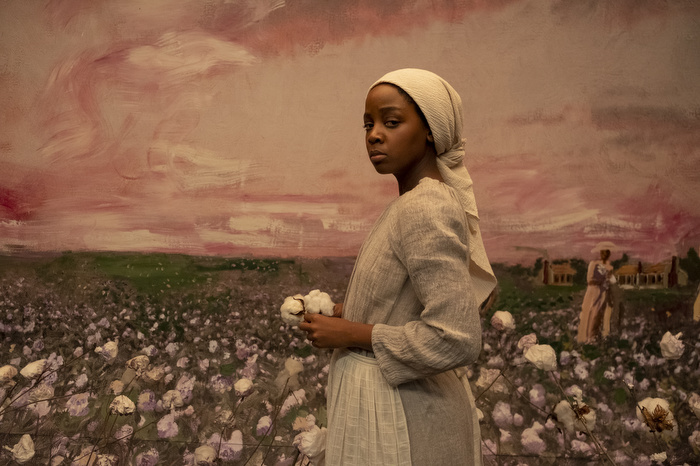Sometimes it seems like the only Black stories taken seriously outside of Black spaces are about slavery. Slavery or suffering. And that’s why shows and movies that portray Black trauma are so tricky and ripe for nuanced discussions. They’re generally for white audiences, sometimes trying to humanize Black folks, sometimes exploiting them, all too often othering them.
When Barry Jenkins (Moonlight, If Beale Street Could Talk) signed on to adapt Colson Whitehead’s Pulitzer-prize-winning Underground Railroad, we held back. We knew we’d need to hear what Black critics thought before investing in the show. Well, the reviews are in and we’ve rounded up three Black Latinas takes on Underground Railroad – and spoiler they all give it rave reviews.
The Underground Railroad Is the Cinematic Event of the Year
Angelica Jade Bastién declares in Vulture, “Calling it merely beautiful does a disservice to the craft on display from Jenkins and his collaborators, including cinematographer James Laxton and composer Nicholas Britell, who worked with the director previously on the films Moonlight and If Beale Street Could Talk. It is a masterwork that puts into the spotlight the sheer power and communion that can be found with visual storytelling. This is a series not so much witnessed but felt.” Read her full review.
The Underground Railroad Is Traumatic, Unflinching and Relentless. It Is Also Beautiful, Must-See TV.
For the Washington Post, Bethonie Butler writes, “Barry Jenkins unpacks two legacies in The Underground Railroad. One is ugly and horrific, the resounding echo of an institution that stripped human beings of their culture and identity and enslaved them for profit. The other is beautiful and stirring, marked by resilience and resolve. These legacies have been intertwined for the past 400 years, but few, if any, on-screen efforts have explored their uneasy convergence as intentionally and cohesively as Jenkins’s adaptation.” Read her full review.
The Ancestors Force Us to See the Truth: The Underground Railroad
Kathia Woods, founder of Cup of Soul, says the series, “doesn’t just show the inhumanity of being enslaved. In all honesty, the pace is deliberately slow to help us comprehend the amount of time and patience required to attain freedom. Barry Jenkins took great care to depict horror not for shock value, but to help the viewer understand what drove Cora to move forward in the first place.” Read her full review.

Correction: This story previously identified all three critics as “Afro-Latina” but “Black Latina” is more accurate. Our apologies!

